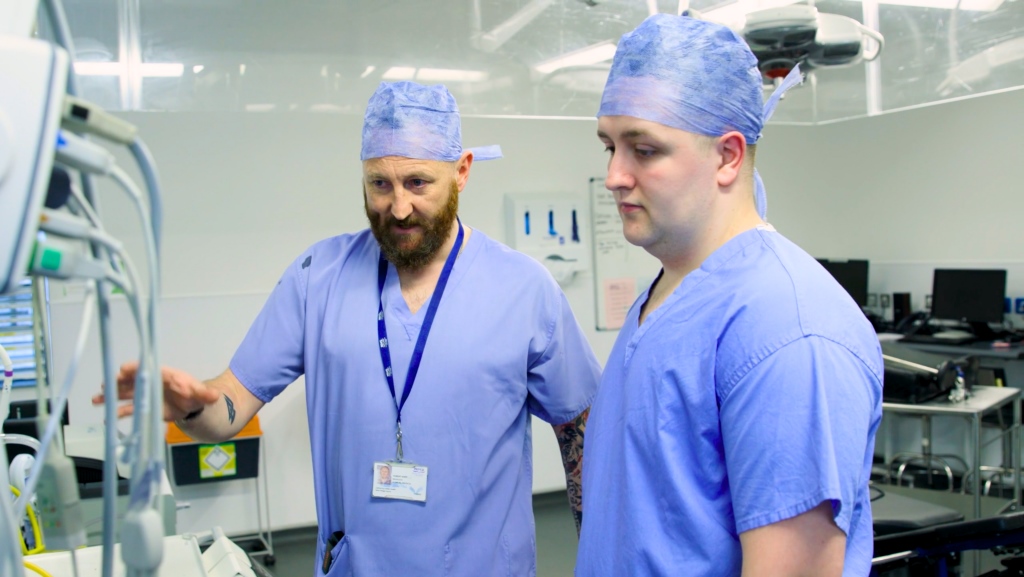Previous
Clinical scientist in immunology
You'll need to complete a work-based training programme to become a clinical technologist in clinical engineering in the NHS.
Clinical technologists in clinical engineering work in one of these 4 areas:
They calibrate, maintain, monitor, test, and repair specialist equipment and medical devices.
To get on a college or university course that could lead to a career as a clinical technologist in clinical engineering, useful subjects include:
Speak to your guidance teacher or careers adviser about subjects offered at your school.

You may find it helpful to get some healthcare experience by doing a work placement or volunteering. You’ll get training, increase your knowledge, and learn new skills. This could help you when applying to college, university, or a new job with NHSScotland.
To become a clinical technologist in clinical engineering, you must complete the Institute of Physics and Engineering in Medicine (IPEM) Clinical Technologist Training Scheme. You’ll need a qualification at SCQF level 7 or above to apply. For example:
You’ll find more information about SCQF levels on the Scottish Credit and Qualifications Framework (SCQF) website. You can also search for college courses and university degree programmes on My World of Work.
Widening participation supports adult learners who want to go to university. If you’re an adult with few or no qualifications, you could get into higher education through the Scottish Wider Access Programme (SWAP). Many universities also provide access programmes to help you get the degree entry qualifications you need.
The IPEM Clinical Technologist Training Scheme at SCQF level 9 is delivered in the workplace.
As a trainee, you’ll have a training plan and learn how to maintain and monitor complex equipment so it can be used safely. During the 2-year programme, your practical skills will be assessed. You’ll also complete a portfolio of work to achieve the IPEM diploma.
Once qualified, you can join the Register of Clinical Technologists.
Training opportunities are advertised on our recruitment website.
Some health boards in Scotland offer opportunities to learn while you earn through apprenticeship-style programmes. You can also apply for these training programmes on our recruitment website.
As a clinical technologist in clinical engineering, you'll use your knowledge of physics or engineering to operate and monitor the safe use of hospital equipment.
Your work will help patients receive accurate diagnoses and treatment. You’ll perform tests to check and fix complex medical equipment. Once you’ve completed this, you'll also record the test results.
Tasks include:
You'll need these skills:
You'll also be expected to have the scientific and technical skills necessary for the role.
Clinical technologists in clinical engineering work with other healthcare professionals, including:
You could work in:

Ryan is an apprentice clinical practitioner technologist. Find out how he discovered a career in medical equipment management.
The Register of Clinical Technologists (RCT) sets the standard for training and conduct and maintains high standards of practice for clinical technologists. You can register with the RCT once qualified.
As a clinical technologist in clinical engineering, you must keep your knowledge and skills up to date with continuing professional development (CPD). Your CPD should be varied and balanced. It can include:
The RCT audits the CPD activities of its members each year. If selected, you'll submit a record of your learning and development to be reviewed by the RCT's CPD Audit Panel.
With experience, you could become a training supervisor for the next generation of clinical technologists. There are also opportunities for you to move into academic research with an MSc or PhD in a relevant subject.
When you become a qualified clinical technologist in clinical engineering, you can join the following professional bodies:

Discover the range of healthcare science careers you can choose in the NHS.
Healthcare science
Our blog includes how-to guides, case studies, and career resources.
Discover more